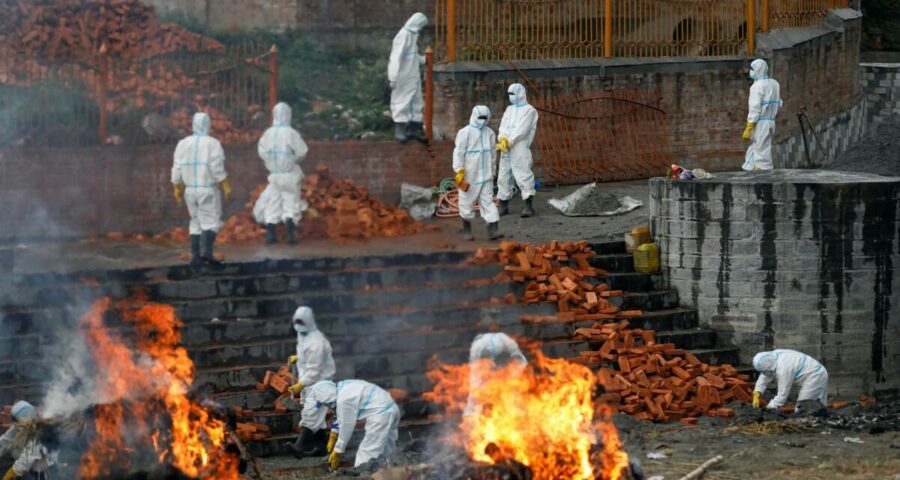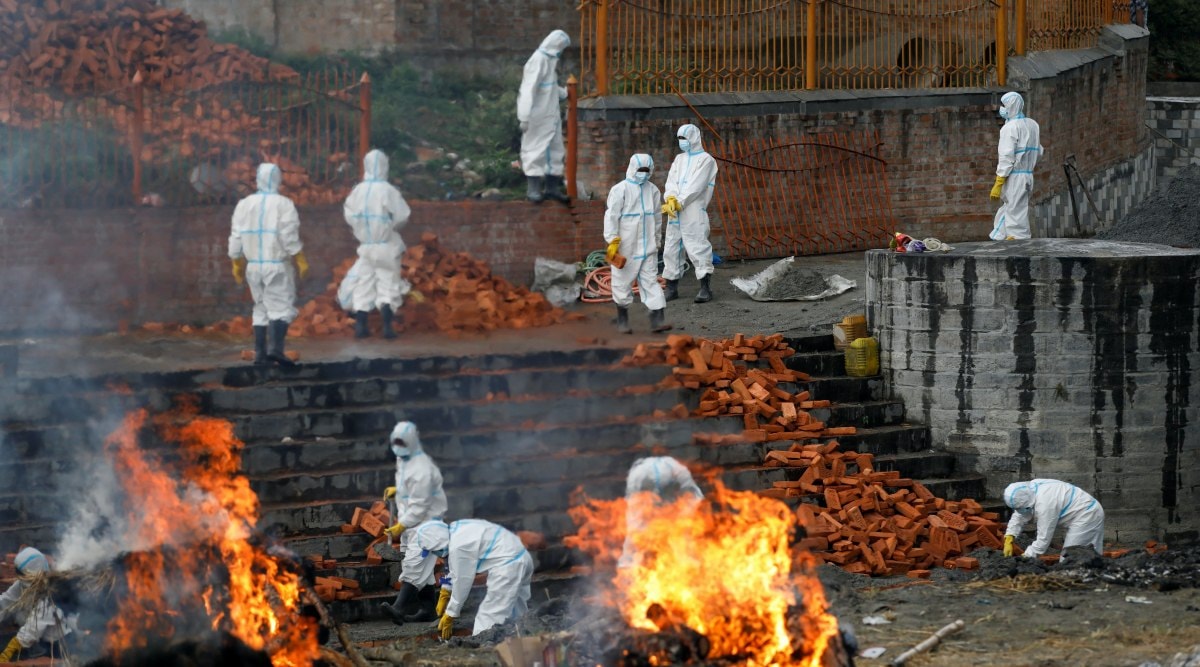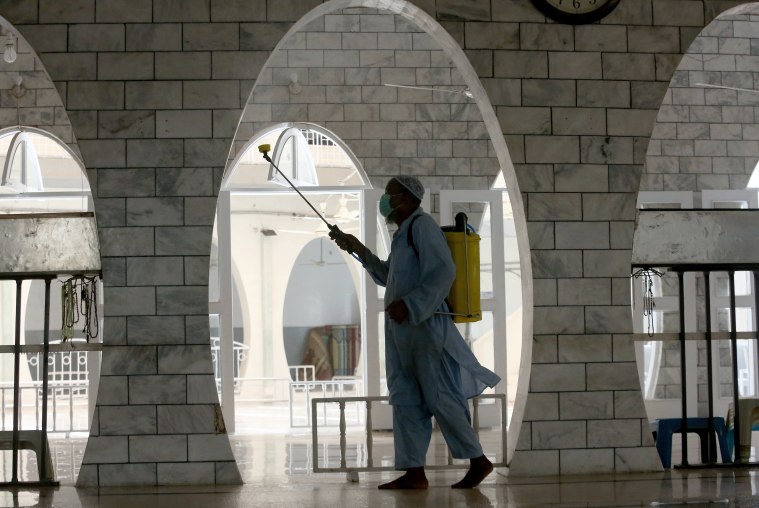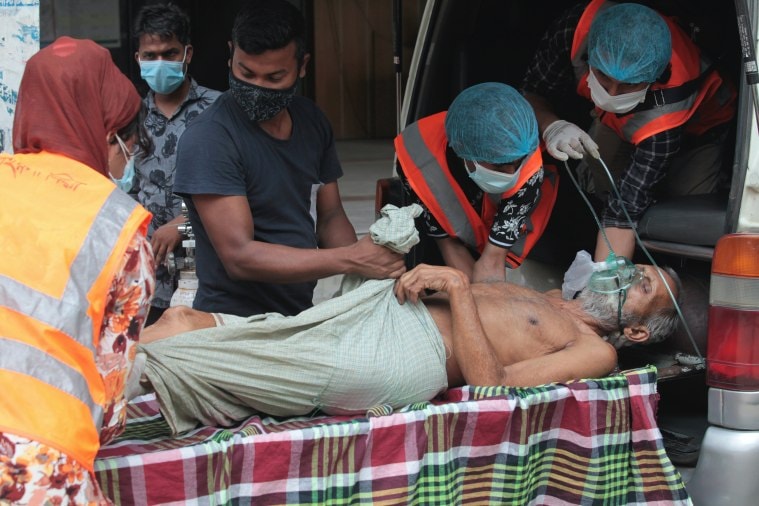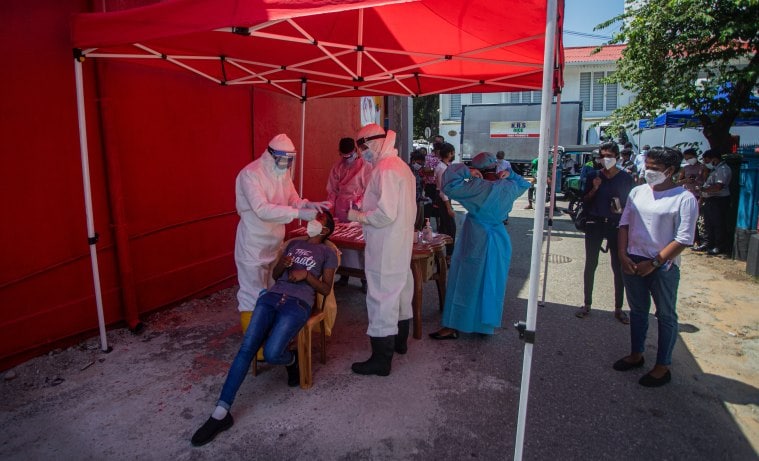With the health infrastructure facing a major blow due to the upward swing in cases, hospital intensive care units in Pakistan and Bangladesh are now full or close to capacity, it said.
As India’s record outbreak of Covid-19 cases spreads across South Asia, a number of its neighbours are also in the firing line, the International Federation of Red Cross and Red Crescent Societies has said.
According to the Union Health Ministry data updated on Thursday, India hit a record daily high with 4,12,262 new Covid-19 cases and 3,980 fatalities being reported, taking the total tally of COVID-19 cases to 2,10,77,410 and the death toll to 2,30,168.
“We need to act now and we need to act fast to have any hope of containing this human catastrophe. This virus has no respect for borders and these variants are running rampant across Asia,” Reuters quoted Alexander Matheou, Asia Pacific director for the Geneva-based agency representing the global humanitarian network, as saying.
With the health infrastructure being overburdened blow due to the upward swing in cases, hospital intensive care units in Pakistan and Bangladesh are now full or close to capacity, it said.
Here’s an account on how much affected such neighbouring countries of India are at present, and what is the state of vaccination there
Nepal
Overwhelmed by a Covid surge, Nepal is at present recording 57 times the number of cases it was recording a month ago with 44 per cent of tests now coming positive, a statement by the International Federation of Red Cross and Red Crescent Societies said. The Nepalese towns bordering India are struggling to cope with the growing number of people who are in dire need of treatment, while only one per cent of the country’s population has been fully vaccinated.
The country on Thursday reported 8,970 coronavirus cases in 24 hours, taking the total tally of infections to 368,580, the health ministry said. As many as 54 fresh Covid deaths were also reported. “The new cases of coronavirus in the country has touched 368,580 with 8,970 fresh infections. The nation also reported 54 new deaths in the last 24 hours,” the Ministry of Health and Population said in a statement. Local authorities have re-imposed lockdown in most parts including Kathmandu valley by another week from Thursday till May 12.
“What is happening in India right now is a horrifying preview of Nepal’s future if we cannot contain this latest COVID surge that is claiming more lives by the minute,” Reuters quoted Netra Prasad Timsina, chair of the Nepal Red Cross, as saying. “It is beyond distressing to see that people cannot say goodbye to their loved ones as cremations are taking place at record levels due to these new COVID variants, which are striking down people of all ages in Nepal.”
A week ago, the country suspended international flights ago until May 14. As of now, there are only two return flights a week to India meant to bring back stranded nationals. Most border crossings are also closed. .
Pakistan
With Pakistan witnessing a significant spike in Covid cases at present, administrations of Punjab, Sindh, Khyber Pakhtunkhwa provinces and Pakistan-occupied Kashmir (PoK) have announced a complete lockdown in their respective regions from May 8 to 15 to contain the spread of coronavirus during the Eid-ul-Fitr holidays in Pakistan, PTI said on Thursday. “The public transport, tourist destinations, parks, business and shopping malls and markets will remain closed during the eight-day lockdown,” PTI quoted Punjab Health Minister Yasmin Rashid as saying.
Planning Minister Asad Umar, who heads the National Command and Operations Centre (NCOC), had recently said that stricter precautionary measures along with an expanded vaccination drive have had a positive effect on the Covid situation in Pakistan, which is said be battling its third wave of infections since March.
According to NCOC, the number of active cases, which had surpassed the figure of 90,000 last week, was 84,480 as of May 5. In other words, the number of active cases has fallen by seven per cent in less than a fortnight. The current positivity rate in the country is 9 per cent.
Bangladesh
With cases rising, Bangladesh has extended ongoing nationwide lockdown till May 16 to curb spread of the virus during the second wave of COVID-19 pandemic. It had clamped a week-long nationwide lockdown on April 5, suspending public transport and shutting down markets. The restrictions were later extended till April 28, then till May 5.
During the lockdown, inter-district bus, train and ferry services would remain suspended but public transports would be allowed to operate within cities after May 5 (Thursday) maintaining health protocols.
On Tuesday, Bangladesh registered 1,914 new Covid-19 cases, taking the tally to 765,596 whereas it reported 61 more deaths which took the toll to 11,705.
The country halted all international flights on April 14 owing to its own surge and also closed its border with India on April 26.
Meanwhile, the registration for COVID-19 vaccine doses were halted on Wednesday due to the vaccine shortage in the country, amid a delay in the arrival of shipments from India. So far, 5,819,719 people have received the first dose of the vaccine while 3,023,169 got the second dose, reported PTI.
As per official figures, the country lacks over 14 lakh second doses of the vaccine which are needed for administer to the recipients of the first jab. The government had suspended administering the first Covid vaccine dose on April 26.
Bangladesh is now expecting the arrival of 0.5 million doses of Chinese COVID-19 vaccines by May 10. Pharmaceutical company Renata Bangladesh Limited has also sought government permission to bring US Moderna’s Covid-19 vaccine to the country.
Sri Lanka
Sri Lanka on Thursday banned all arrivals from India with immediate effect due to the record rise in COVID-19 cases in its neighbouring country. The country, which is currently experiencing a spike in COVID-19 cases, has recorded nearly 2,000 new cases in each of the last 5 days. This is a ten times jump in daily cases since mid-April when it used to record an average 200 cases per day.
Described as the New Year cluster coming from the traditional New Year festivities mid April, the current wave of infections comprise the fast spreading UK variant, the health authorities said. Sri Lanka had served as a transit hub for Indians visiting other destinations like West Asia and Singapore before which they needed to be quarantined for 14 days. This was an arrangement by the Sri Lanka Tourism Development Authority.
Meanwhile, Sri Lanka Thursday started administering Russia’s Sputnik V vaccine after it got the first batch of 15,000 doses, an health official said. The country received the Russian consignment of 15,000 doses early this week out of an order for 13 million of Sputnik jabs. The country has already immunised 9,25,000 of the 21 million population with Oxford AstraZeneca’s Covishield manufactured in India.
(With inputs from PTI, Reuters)
Source: Read Full Article
